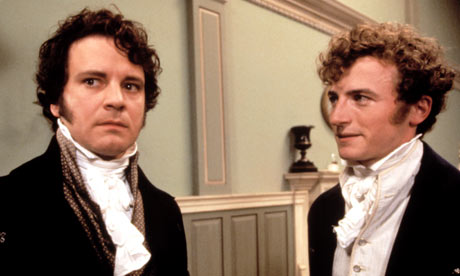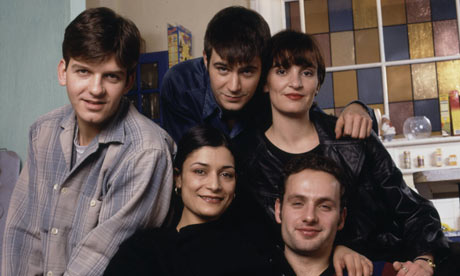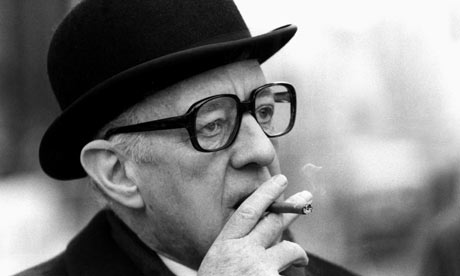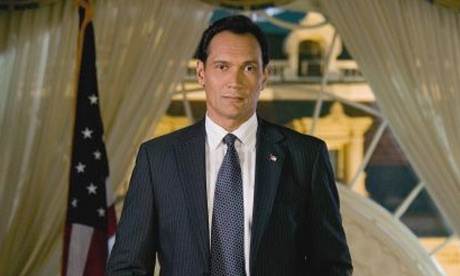|
|||||||
| TV Stars | Hindi | Telugu | Tamil | Kannada | Bengali | Marathi | Malayalam |
Top 50 Television Dramas of all time (Full Details) |
 |
|
Views: 3960
|
Thread Tools | Rate Thread |
|
|||||||
| TV Stars | Hindi | Telugu | Tamil | Kannada | Bengali | Marathi | Malayalam |
Top 50 Television Dramas of all time (Full Details) |
 |
|
Views: 3960
|
Thread Tools | Rate Thread |
| TV Stars | Hindi Shows | Telugu Shows | Tamil Shows | Kannada Shows | Bengali Shows | Marathi Shows | Malayalam Shows |
|
#1
|
|||
|
|||
|
Our TV critics have voted, debated and decided on a top 50 of classic TV drama series - the results might just surprise you...
50 Grange Hill (BBC, 1978-2008) Drugs, disability, bullying, ***uality creator Phil Redmond rewrote the rules of children's television fiction with his punchy school drama. 49 Shameless (C4, 2004-) Paul Abbott's tableau of Chatsworth Estate life was spine-tingling from the opening *******, bag-snatch and bouncer knocked out flat on a nightclub floor. I adore Abbott for his hard-nosed vision of telling the truth about this social class. It was an *uncomfortable truth for some, a bloody irritation to others and a dog whistle to millions who knew that Fiona, Steve and Frank and the rest of The Jockey regulars weren't *pantomime oafs, but complexly *observed characters. Seven series later, we take Shameless for granted. We underestimate its deft scripts, its truth in handling teen *issues and its warm portrayals of *family, friendship and fun on the cheap. Often the devil hides in the details: *during one inter-Gallagher drama with *requisite punchups and police, Frank staggered through the carnage to the bar of his local and announced: "Pint of lager and an E please, Kev" *before sinking both, *slapping Happy Mondays on the *jukebox and Bez-dancing away the pain. Say what you like about him, he knows how to throw a party. *Scatter. GD 48 EastEnders (BBC, 1983-) Possibly the most miserable place on earth to spend Christmas, but Albert Square's joyless, bickering *residents have always kept an appeal for soap fans. 47 The Sweeney (ITV, 1975-8) Ian Kennedy Martin's portrayal of the Met's Flying Squad with John Thaw and Dennis Waterman as cops who didn't mind dirtying their hands was revolutionary, although it was later spoofed by Life on Mars. 46 Bleak House (BBC, 2005) Andrew Davies's smart script and stylish editing plus a blue-chip cast made this Dickens adaptation a critical and popular smash. 45 The X-Files (Fox, 1993-2002) David Duchovny and Gillian *Anderson played the prickly dream team of Mulder and Scully, FBI agents on the trail of unsolved paranormal mysteries. |
| TV Stars | Hindi Shows | Telugu Shows | Tamil Shows | Kannada Shows | Bengali Shows | Marathi Shows | Malayalam Shows |
|
#2
|
|||
|
|||
 Colin Firth as Mr Darcy and Crispin Bonham-Carter as Mr Bingley in Pride and Prejudice. Photograph: Everett Collection / Rex Features 41 Pride and Prejudice (BBC, 1995) Colin Firth as Mr Darcy and Crispin Bonham-Carter as Mr Bingley in Pride and Prejudice. Photograph: Everett Collection / Rex Features 41 Pride and Prejudice (BBC, 1995)Andrew Davies's Austen adaptation became the benchmark for bonnet dramas. Notable for Colin Firth's wet-shirted Mr Darcy and Alison *Steadman's screeching Mrs Bennet. 42 Red Riding (C4, 2009) Visually stunning, evocative but *infuriatingly elusive trilogy drawn from David Peace's dark, Yorkshire-set crime novels. 43 Oz (HBO, 1997-2003) Grimly powerful vision of life inside Emerald City, a maximum security prison wing. Drugs, ***, terrifying *violence and a dash of humour made it addictive late-night viewing. 44 The Street (Granada/BBC, 2006-9) Jimmy McGovern's rotating-*protagonist drama was set around a Salford terrace, produced for the BBC at the Granada studios in Manchester where Corrie is based and took as its title the common shorthand name for British TV's longest-running soap. McGovern insists that the allusion was not deliberate but The Street can be seen as an attempt to cross the conventions of soap opera with the social conscience of The Wednesday Play and Play for Today. This tone of high-class *ethical melodrama was set in the opening episode, in which Jane Horrocks has just committed ecstatic adultery with a married neighbour when he runs over her young daughter in his car. The show had an uncanny ability to attract serious talent: Anna Friel, Bob Hoskins, Jim Broadbent and Timothy Spall. With the highest prize-to-time ratio of any UK drama (two Baftas and two Emmys in the first two years), it ended after three series because *Granada slashed its drama *operation. ML |
| TV Stars | Hindi Shows | Telugu Shows | Tamil Shows | Kannada Shows | Bengali Shows | Marathi Shows | Malayalam Shows |
|
#3
|
|||
|
|||
 This Life: totally right for back then. Photograph: BBC 31 This Life (BBC, 1996-7) This Life was about five twentysomethings – middle-class, working, with a bit of money in their pockets for the first time. They basically did what they wanted – sat around on Ikea *furniture, listening to Portishead, shagging (the wrong people, the right people), sometimes dabbling in drugs – while they embarked on their professional careers and tried to figure out who they were. And that's pretty much exactly who was watching it as well. Maybe we saw ourselves in there, perhaps it was more about wanting to be like that. But it felt real – not just because of the wobbly handheld cameras, but because they spoke (and swore) and behaved like real twentysomethings. The sequel, This Life + 10, was a mistake – like a drunken liaison with someone you were with a long time ago. Someone who was wrong for now, but totally right for back then. SW 32 Band of Brothers (HBO/BBC, 2001) Steven Spielberg and Tom Hanks's stunning portrait of comradeship, bravery and misery among US infantry in the second world war. 33 Hill Street Blues (NBC, 1981-7) A police procedural set in an unnamed industrial metropolis, this was one of TV's first ensemble dramas, its *daring storylines (social deprivation, mental illness), creative audaciousness (intertwined plot-threads, veritι camerawork) and conspicuously glamour-free cast (mottled complexions, explosive home perms) beckoning in a new era of issue-led naturalism. The co-creation of Steven Bochco (who would later explore similar *territory with NYPD Blue), its seven seasons *oscillated between *beautifully *observed soap and searing social *commentary and found a fittingly heartfelt catchphrase in Sgt Esterhaus's rollcall-closing: "Let's be careful out there." TV has been trying – and failing – to replicate its unique dynamism ever since. SD 34 The Prisoner (ITV, 1967-8) Patrick McGoohan is gassed and wakes up imprisoned in an idyllic *village *controlled by mysterious forces. Baffling. 35 St Elsewhere (NBC, 1982-8) Life among the cranky staff of a fading Boston teaching hospital. Full of *in-jokes; inspired multiple spinoffs. 36 The L Word (Showtime, 2004-9) Love and loathing among a tight-knit group of LA lesbians. A ground*breaking concept that has so far run for six seasons. 37 The Shield (Fox, 2002-8) Detective Vic Mackey proudly *described himself as "a different kind of cop". One that broke all the rules, mainly, in this tough LA procedural. 38 Brookside (C4, 1982-2003) Bodies under patios, fires, explosions – the plot of Phil Redmond's Liverpool soap got ever more ridiculous but *covered many serious issues sensitively during its long run. 39 24 (Fox, 2001-) Yes it got a little tired. Or rather is *getting a little tired – it's still going on, season eight starts soon. I think I know how it will go: the bad guys are still turning into good guys and vice versa, computer systems will be hacked into, and Jack Bauer will still be ringing up the biggest mobile phone bill in *history, while simultaneously saving the free world. But when 24 started, with its split-screen action and real-time presentation, it was just about the most exciting thing ever on television – a white knuckle, rollercoaster ride like nothing else at the theme park. It was faster, the turns were sharper, the drops and climbs steeper than *anything else. There were hair-raising switchbacks and loop-the-loops that threw you around. It was the ride of a *lifetime, and it left you breathless and exhausted, but wanting more. *Brilliant. SW 40 The Twilight Zone (CBS, 1959-64) Ordinary people, extraordinary events. A monochrome journey into a supernatural dimension. |
| TV Stars | Hindi Shows | Telugu Shows | Tamil Shows | Kannada Shows | Bengali Shows | Marathi Shows | Malayalam Shows |
|
#4
|
|||
|
|||
 Alec Alec Guinness won a Bafta for playing George Smiley in Tinker, Tailor, Soldier, Spy. Photograph: Allstar/BBC/Sportsphoto Ltd./Allstar 21 Tinker, Tailor, Soldier, Spy (BBC, 1979) Alec Guinness won a Bafta for his *portrayal of retired spy George Smiley in this John Le Carrι adaptation. 22 Buffy the Vampire Slayer (The WB/UPN, 1997-2003) You can't get sick of the tale of a *SoCal blonde popsy who turns out to be her generation's vampire slayer. Over seven series thick with classical *allusions, pop culture references, wit, charm, martial arts sequences and achingly painful love stories, she grows into the role and gradually learns what it means to be the chosen one. She made old-fashioned ideals like honour and sacrifice relevant and accessible again, and even resurrected ancient feminist beliefs by fighting back against the demons that sought to subdue her. Instead of forever being rescued (or punished for having *** or self-confidence) like the damsels in horror stories of yesteryear, she saved the world. A lot. Grief, love, betrayal, nobility, self-indulgence versus self-sacrifice Buffy gave us all this to think about, and some excellent punning too. LM 23 Cracker (ITV, 1993-6) A drunk and a gambler, but Robbie *Coltrane's psychologist had an *unerring knack for pointing the finger at the villain in Jimmy McGovern's *police drama. 24 Pennies From Heaven (BBC, 1978) Bob Hoskins was the sheet music *salesman prone to burst into song in Dennis Potter's musical romance. 25 Battlestar Galactica (NBC Universal/Sky, 2003-9) To call it the greatest modern sci-fi series would be to damn it with faint praise it's so much more. With towering performances all round, anchored by Edward James Olmos and Mary McDonnell (two people you'd really like to be running things if we're ever facing apocalypse) it was some of the most breathtaking, passionate and emotional drama that TV has ever given us. The plots were deft essays that touched on heavyweight topics such as the division between church and state, or the balance between faith and destiny, without ever forgetting to be anything less than totally entertaining. It also proved the scope of its relevance with one of the most articulate depictions of the war on terror that TV has ever dared to approach. But yes, it has mean-looking robots so it will probably always be filed under geek. Still, it's genius so say we all. RV 26 Coronation Street (ITV, 1960-) Wit, warmth, sharply and lovingly drawn characters it's probably too late to catch up from the start of the Manchester soap, but fans reckon it's as rich as ever. 27 The Jewel in the Crown (ITV, 1984) International awards were lavished on this plush study of the British Raj's last days in India. 28 The Monocled Mutineer (BBC, 1986) Alan Bleasdale's serial about a first world war army deserter attracted *millions of viewers and accusations of BBC "leftwing bias". 29 Clocking Off (BBC, 2000-3) By the turn of the millennium, *British TV drama had lost faith with and starved funds from the socially aware single drama in favour of the continuing series, usually with the emphasis on professional or domestic situations. Paul Abbott cleverly merged the two traditions by fitting scripts which were, in effect, single-issue, single-character plays within the framework of a drama serial. Against the background of a northern factory run by a company called Mackintosh Textiles, Abbott used a dramatist's equivalent of the movements of a camera: one character was in big close-up every week with people from previous episodes seen in passing or the far distance. Small moments or decisions a secretary having cosmetic surgery, a worrying scene glimpsed in a neighbour's window led to shattering moral dilemmas. Clocking Off is sometimes regarded as a preview of greatness to come with Abbott writing Shameless and State of Play, factory boss Philip Glenister going on to play DCI Gene Hunt but earns its own medals as a brilliant *negotiation between TV drama's *political past and more recent populist tendencies. ML 30 Inspector Morse (ITV, 1987-2000) John Thaw pootled around *Oxfordshire in a vintage Jag, solving crimes in a distinctively grumpy but well-read manner. This article was amended on Tuesday 12 January 2010. Coronation Street is set in Manchester, not Yorkshire as we originally said. This has been corrected. |
| TV Stars | Hindi Shows | Telugu Shows | Tamil Shows | Kannada Shows | Bengali Shows | Marathi Shows | Malayalam Shows |
|
#5
|
|||
|
|||
 Jimmy Smits in Season 6 of The West Wing. Photograph: NBCUPhotobank/Rex Features 11 The West Wing (NBC, 1999-2006) This backstage presidential drama was a combination of highly researched realism viewers learned precisely how to appoint a new justice to the Supreme Court or assassinate a foreign potentate and liberal fantasy: Martin Sheen's wise, articulate, Nobel prize-winning Jed Bartlet served as consolation to moderate Americans during the Dubya years. Striking for its prescience Bartlet is eventually succeeded by a non-white president modelled on the then little-known Senator Obama from Illinois it demonstrated what can come from trusting a writer-creator's vision: in this case, Aaron Sorkin. The episode Two Cathedrals combines dizzying moral and psychological complexities with monologues addressed to God in untranslated Latin to constitute one of the boldest episodes in TV history. Sadly, no UK attempt to replicate The West Wing has succeeded, largely because the British prefer their fictional politicians laughable or nasty (Yes, Prime Minister, The Thick of It) rather than decenct and serious. ML 12 Twin Peaks (ABC, 1990-1) Even now, the idea of David Lynch *being allowed anywhere near network television seems like an impossible dream but his show became a global hit. At first it seemed like he'd reframed the melodrama of the Who Shot JR? storyline in Dallas as the ****** of a small-town prom queen. But it was like watching someone hallucinate about a soap opera, floating in a nether-world of Americana between the 1950s and the 90s. Will there ever be scenes on TV as baffling and as thrilling as Agent Cooper's visits to the Red Room, with enigmatic clues pouring out of a backwards-talking dwarf? Or a *marginal character as much-loved and discussed as the Log Lady? Or a script that could flip *effortlessly from eulogising simple pleasures (damn fine coffee and a slice of pie) to the *unrepenting terror of ****er Bob's *howling face? RV 13 Queer As Folk (C4, 1999-2000) It still feels wonderfully bold and shocking. Yes, Britain's attitude to ***uality may have progressed, but in the current paranoid TV climate it's tough to envisage episode one of this intoxicating series being greenlit. As Stuart, Vince and Nathan drain the maximum joy possible from Manchester's Canal Street district involving class As, rimming, underage *** and a jaunt to the maternity wing to visit the baby Stuart has fathered with lesbians it's tough to choose which segment of the potential audience would die of offence first rather than simply switch off. QAF is big, beautiful and fast, its characters painted with broad brushes rather than dainty dabs. Russell T *Davies *created a show for gay men to laugh at and feel included by that was daring and addictive enough to ensnare anyone who simply loved good TV. GD 14 The Wire(HBO, 2002-8) Though regularly described by critics as the greatest television series ever made, David Simon's epic dissection of Baltimore society struggled for *ratings. This suggests that it is praised and watched by people who don't generally like television, but The Wire matters because it challenged one of the medium's most fundamental *assumptions. In recent decades, the consensus among drama-makers was that TV's natural bedmate was cinema. A few visionaries, though, had always insisted that small-screen drama's twin was print fiction and Simon brought this idea to triumphal fruition with a series which is, in effect, a five-decker novel exploring successively the cops, docks, politicians, schools and *newspapers of a single city. Simon hired novelists as screenwriters and this strategy combined with an indulgence from HBO to ignore traditional TV rules on the immediate comprehensibility of plots and dialogue created a drama with a depth and complexity which few novels, never mind TV series, have achieved. ML 15 Six Feet Under(HBO, 2001-2005) It shouldn't work at all. The central characters, the Fisher family, run a funeral home. Every episode starts with a death. They hold conversations with the deceased. It is, in short, a clattering bag of terrible ideas. In Alan Ball's hands it becomes a magnificent, bull-headed beast, tossing taboos on its horns as it goes. Death is real, life is messy, conflicts are frequently irreconcilable, *** is only rarely meaningful. It embraced the fact that, in life and death, people are complicated and only become more so as you get to know them. It should go in the pantheon of greats for creating Brenda Chenowith (played by Rachel Griffiths) alone the single most richly drawn, beautifully nuanced, bewitching, *frustrating, *fabulous female character in modern television. Genius. LM 16How Do You Want Me? (BBC, 1998-9) A literate romantic dramedy that owed as much to Straw Dogs as it did to Four Weddings and a Funeral, Simon Nye's ode to love, mud and internecine *eccentricity ran for two wonderfully idiosyncratic series. Dylan Moran and Four Weddings's Charlotte Coleman were perfectly cast as Ian and Lisa *Lyons shambolic newlyweds whose relocation to her parents' isolated *village would place them in a fogbank of rhubarbing yokelism and unaccountable familial hostility. Trapped in Camberwick Black, their disarmingly steadfast relationship served as a surprisingly tender counterpoint to the snowballing unpleasantness of their new life. The series provided a bittersweet epitaph for the wonderful Coleman, whose horribly premature death in 2001 ensured it was left to the viewer's imagination as to whether the Lyonses would ever escape their exquisite rustic nightmare. SD 17 Smiley's People (BBC, 1982) As in the previous BBC John Le Carrι adaptation (Tinker, Tailor, Soldier, Spy) George Smiley is called out of retirement to take on an intangible Soviet foe. It's another labyrinthine thriller, dark and unrelenting, heavy on jargon, with an infernally complicated plot. There are double agents, triple agents every character has at least two names. This cold-war world is a murky one, where good and evil are indistinguishable in the gloom. And once again it's Alec Guinness's extraordinary performance as Smiley that carries it. He has a presence that is both morose and dignified, and is totally bewitching. It's interesting to compare it with *today's Spooks which is so much fizzier and ***ier but fails to capture a time as Smiley's People did with cold-war *mistrust. I also suspect Smiley's *People has more grounding in MI6 reality. Maybe I know it has . . . SW 18 House of Cards (BBC, 1990) As Francis Urqhart, Ian Richardson *flattered us into rooting for the ultimate evil Tory. His asides to camera in cabs, walking through the Commons corridors, or while he was in the loo justified his chilling logic with the consummate s**** of a natural politician, often delivered with the ultimate line in dissembling: "You might very well think that, I could not possibly comment." A story revolving around a Conservative power struggle, it was also the beneficiary of immaculate timing being transmitted just after Thatcher had walked out of No 10. In the wake of that bombshell, it was almost believable that a shadowy Tory grandee like Urqhart could be stalking the shadows, plotting ******s, shafting everyone around him in a vicious landgrab for the top job. Even his initials (FU) suggested his immaculate contempt for anyone who wasn't useful to him. RV 19 Prime Suspect (ITV, 1991-2006) In DCI Jane Tennison, Lynda La Plante created the ultimate anti-heroine: resilient, intelligent and flawed by an addiction to booze and awkwardness in love, yet all the stronger for this. The first Prime Suspect was bluntly feminist: Jane had to beg to be in charge. "Let one have its own ****** case, they'll all be wanting one," spluttered her boss. Before any torture-******ers could be convicted, Tennison had the seemingly more vital job of earning respect from a gang of jaded CID men. In later series, Tennison tackled child prostitution, war criminals and gruesome ******s, surrounded in the *midnight hours at her desk by pictures of severed limbs and stab wounds, cigarette smoke blasting from the corner of her haughty mouth. Her work/life balance was an omnipresent story and "having it all" was shown mostly to be a farce her "support network" following her father's death was another file of corpse shots and a large bottle of scotch. Bleak, brutal and beautifully rendered, this was British crime drama at its absolute best. GD 20 Bodies (BBC, 2004-6) Based on former doctor-turned-writer Jed Mercurio's book, this ran for two pulverising series and painted a truer and more terrifying picture of the NHS than we had ever seen before or have seen since. Medical misdiagnoses? Fact of life. Arrogant and incompetent doctors? Strewn with a liberal hand through every department and protected by the system at every turn. *Idealism and professional ethics? Choked by lack of funds compromised care costs so much less and crushed under the weight of internal, pettifogging bureaucracy. Written with evident and merciless rage, it showed a health *system holed perilously close to the waterline, kept afloat only by *beleaguered nurses and younger doctors not yet quite exhausted by the effort. It even coaxed a barnstorming performance out of Max Beesley. LM |